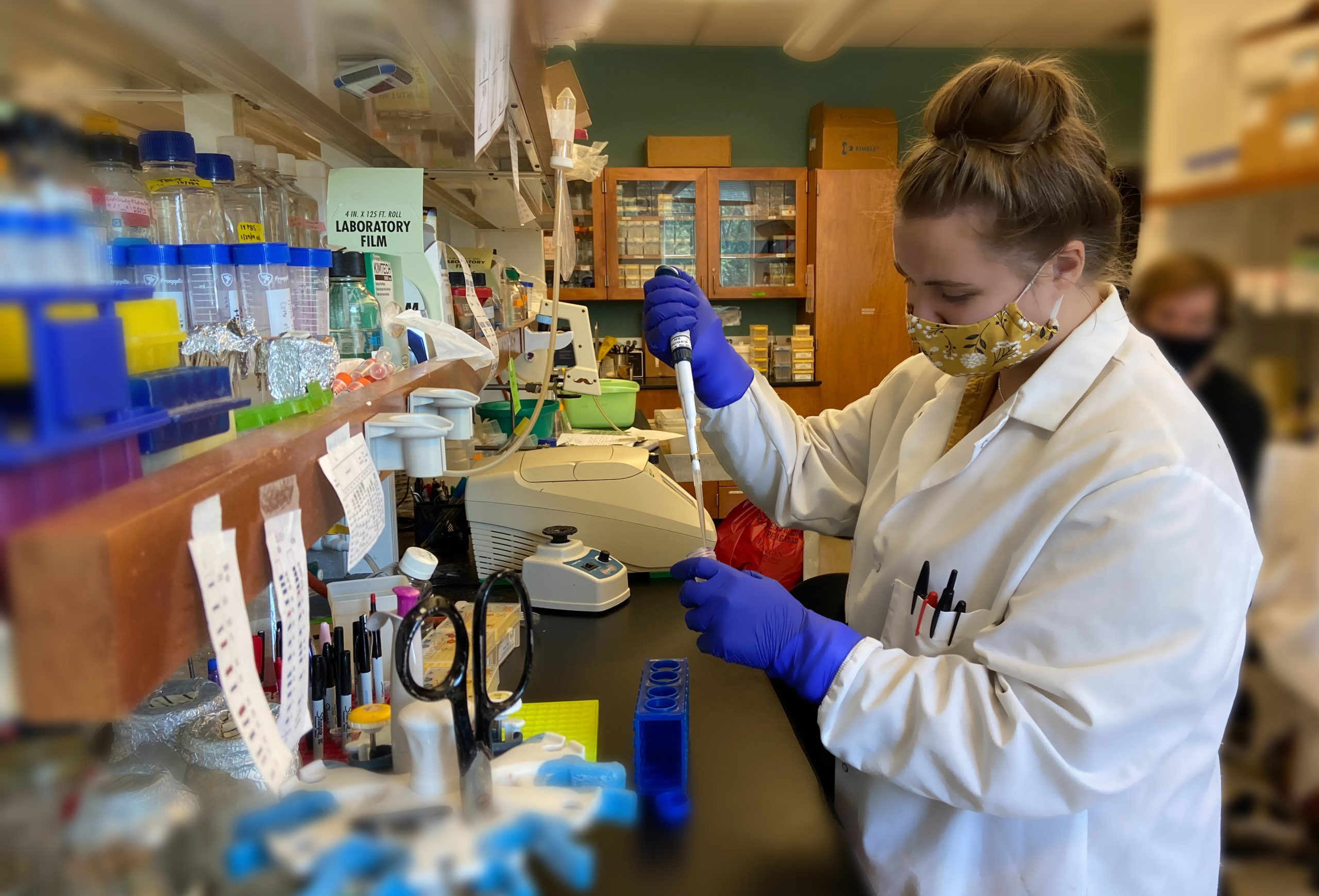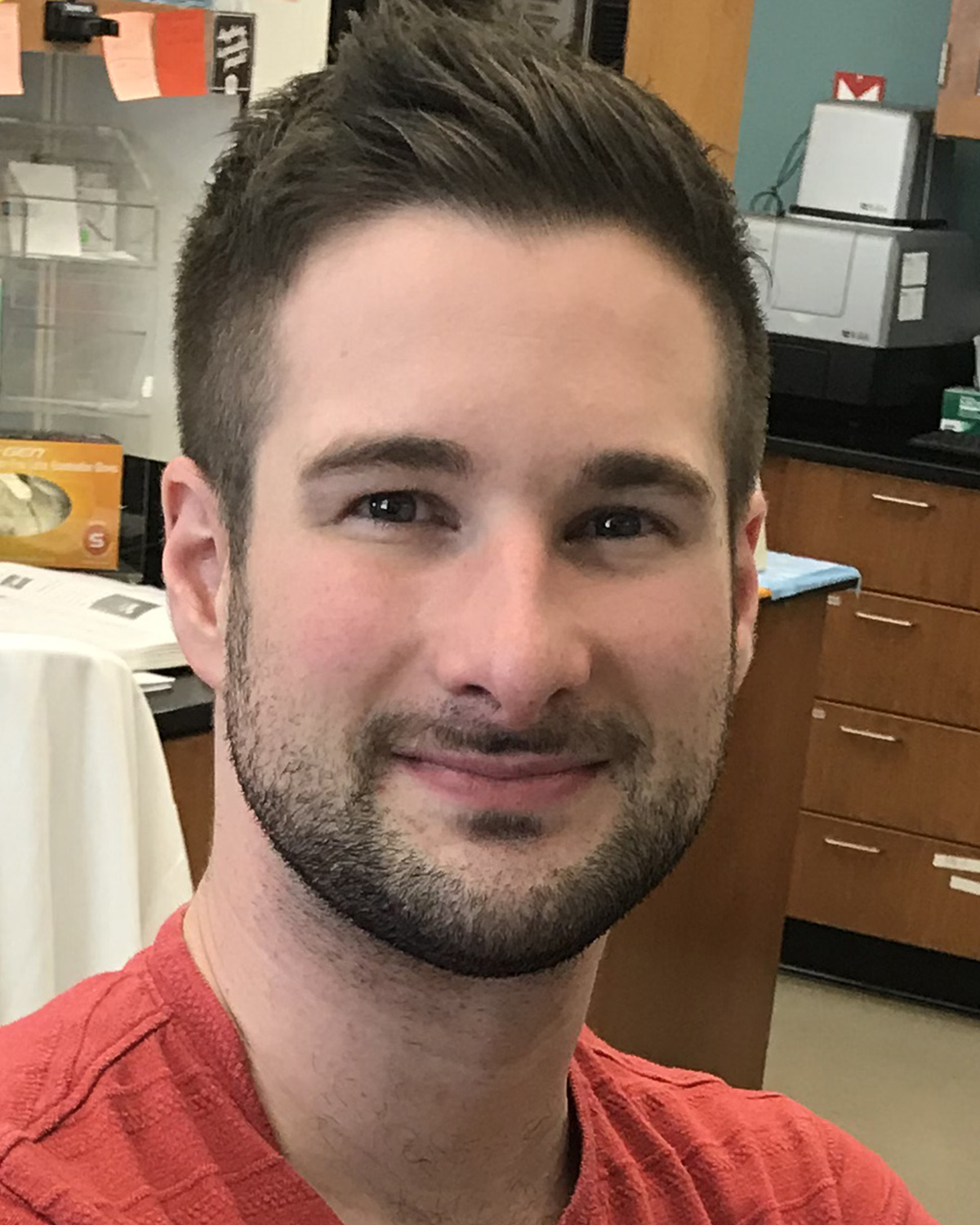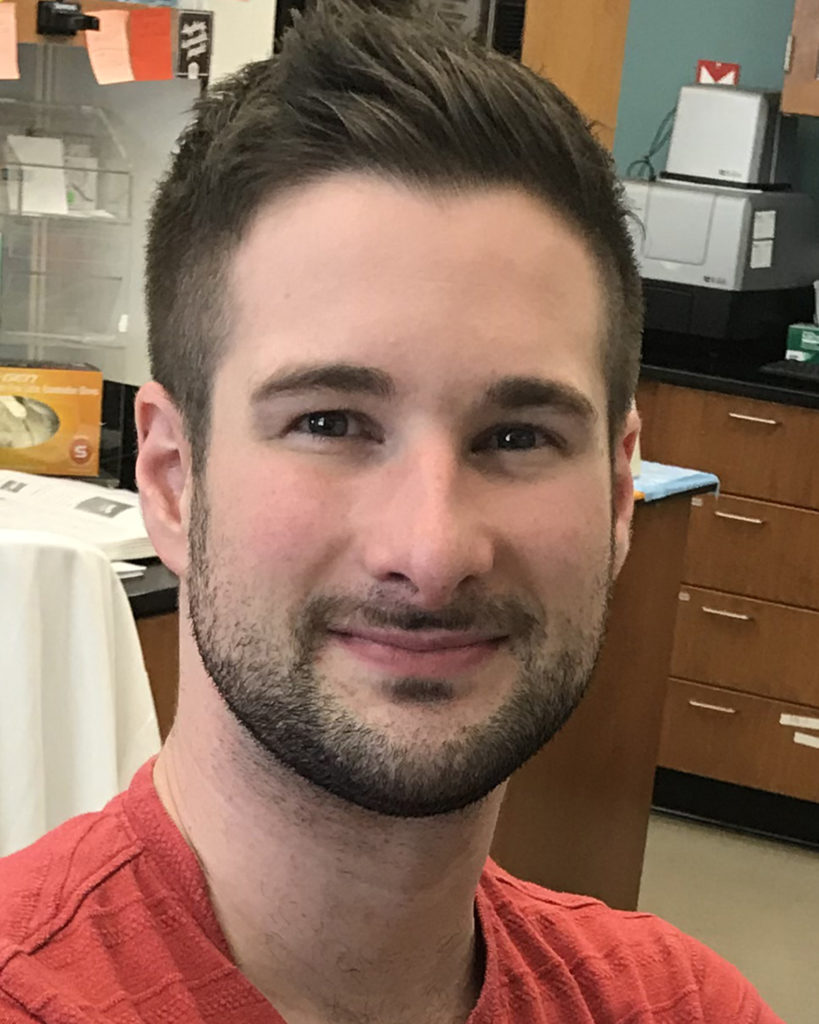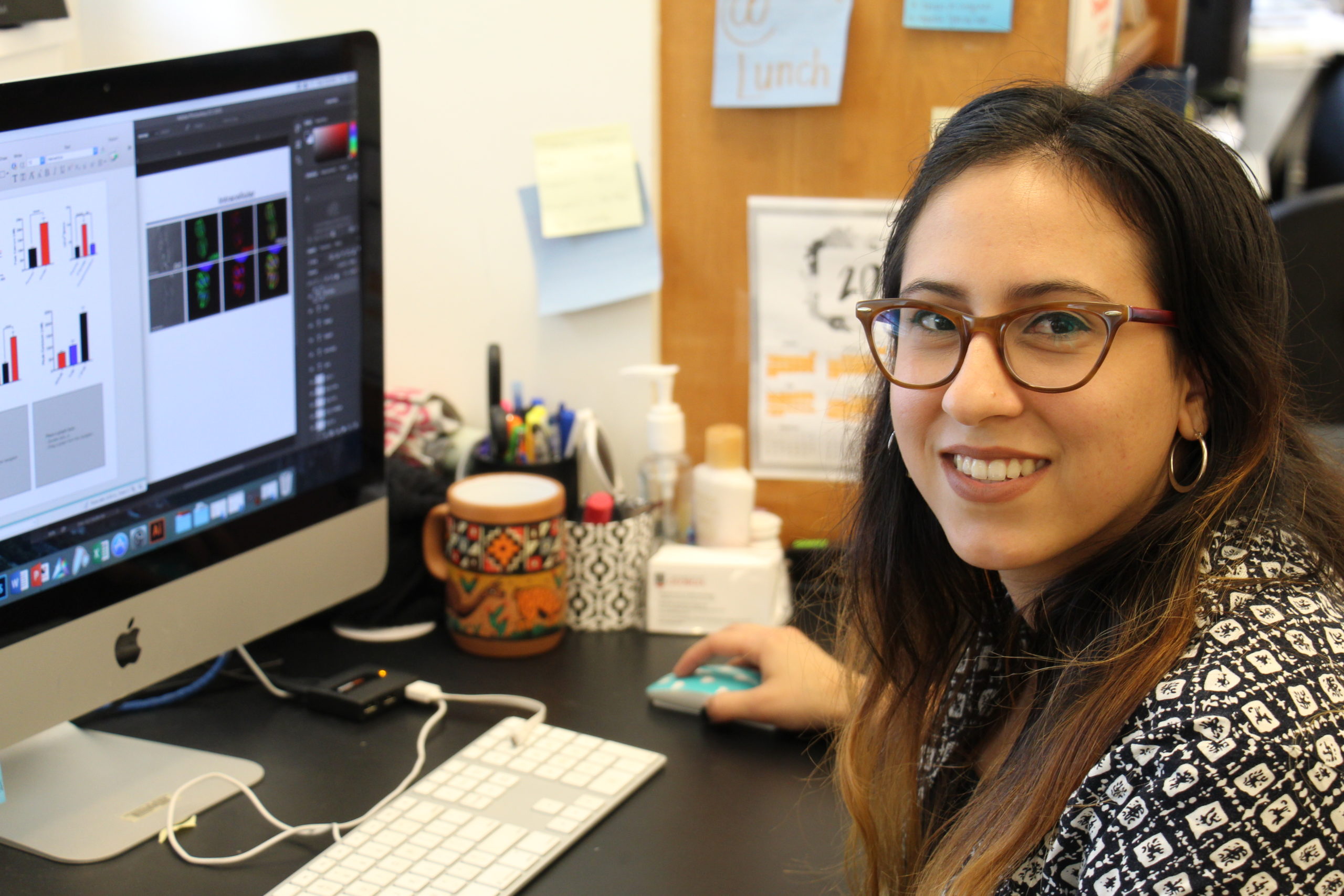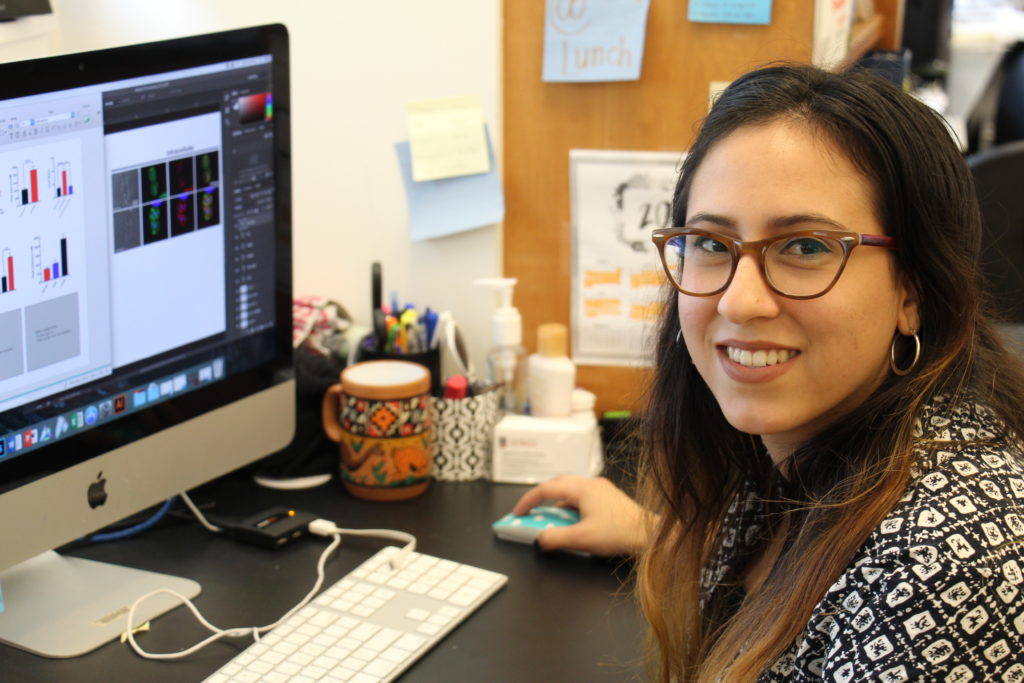Trainee Spotlight: Melissa Sleda
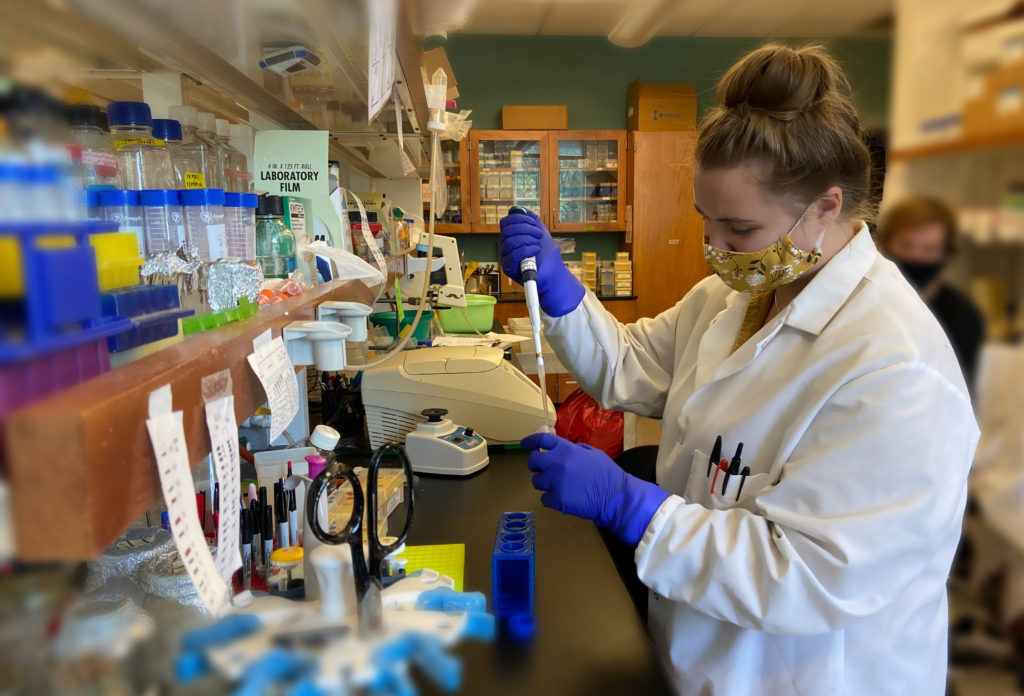
Melissa Sleda, a Ph.D. trainee is Silvia Moreno’s laboratory, is in her third year at UGA. She is originally from Sandusky, Michigan and attended Lawrence Technological University where she majored in Molecular and Cell Biology with a minor in Chemistry. At UGA, she has held positions as the Secretary for the Cell Bio Grad Student Association (2019-2020), and as Treasurer (2019-2020) and current President (2020-2021) of the CTEGD grad student association.
Melissa Sleda has been awarded a T32 Trainee Fellowship for the 2020-2021 academic year.
Why did you choose UGA?
I chose UGA because of the Integrated Life Sciences Umbrella program. As an incoming graduate student, I was not set on studying a particular organism, and I was excited for the opportunity to rotate in labs across different departments.
What is your research project?
My project seeks to characterize enzymes of the isoprenoid biosynthetic pathway in Toxoplasma gondii and to investigate these enzymes as potential chemotherapeutic targets. The current chemotherapy for Toxoplasmosis is ineffective because it does not eliminate the chronic stage of infection. My project seeks to test drugs that target enzymes of the isoprenoid pathway in both the acute and chronic forms of infection in order to find a more effective chemotherapy.
What are your future professional plans?
My future career goal is to stay in academia and become a professor at a smaller institution with a higher emphasis on teaching and leading smaller research projects. I want to help students at smaller universities gain research experience through classroom labs and one-on-one research projects.
What do you hope to do for your Capstone Experience?
For my capstone experience, I hope to be able to do research in another country to gain a wider perspective of how research is done in other countries. I hope that I am able to do research in a lab that I can learn new techniques that will translate into my research project.
What is your favorite thing about Athens?
My favorite thing about Athens is the warm weather and the great sense of community.
What advice do you have for students interested in this field?
Do things out of your comfort zone because it will help you develop as a scientist.

